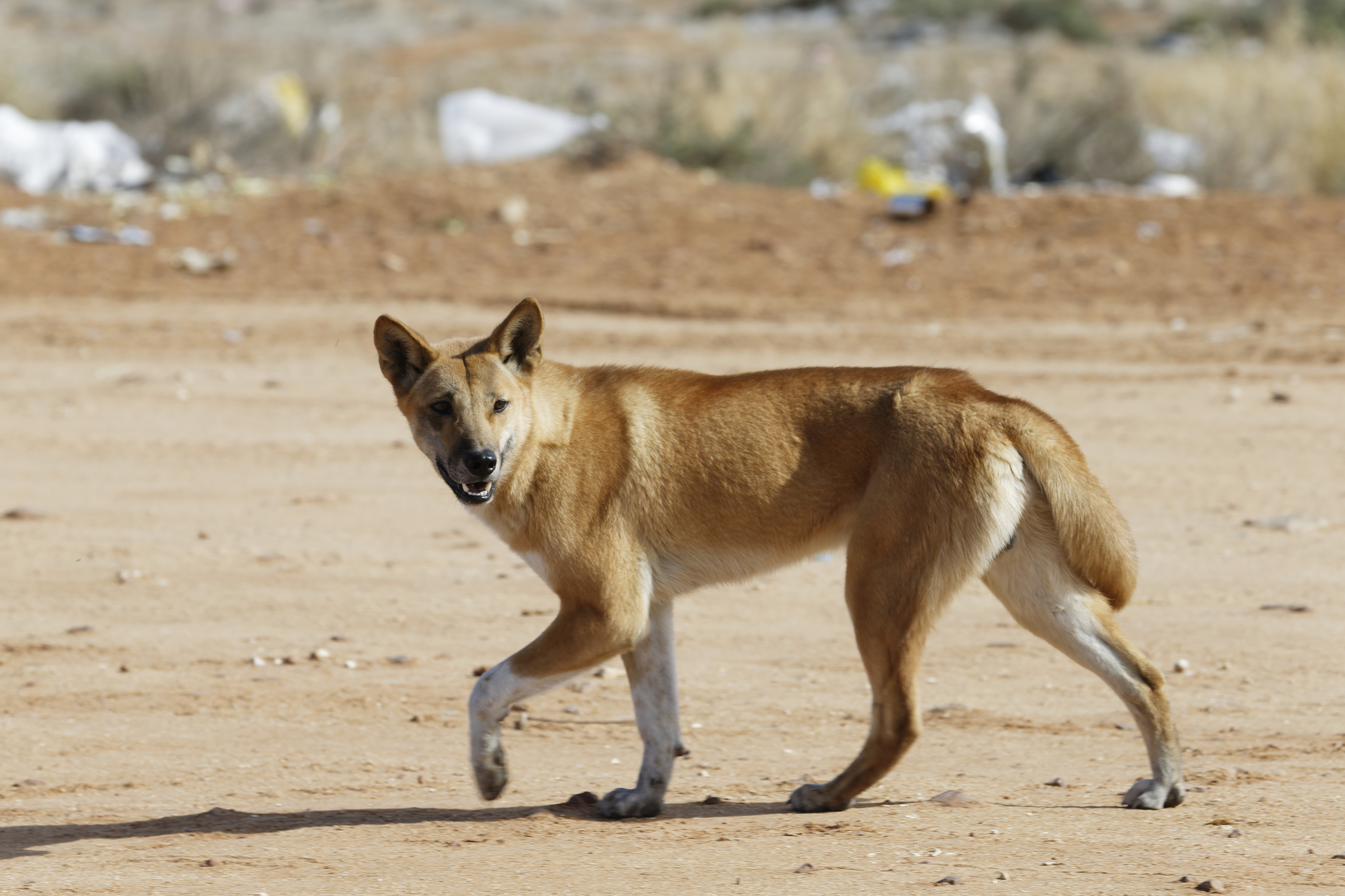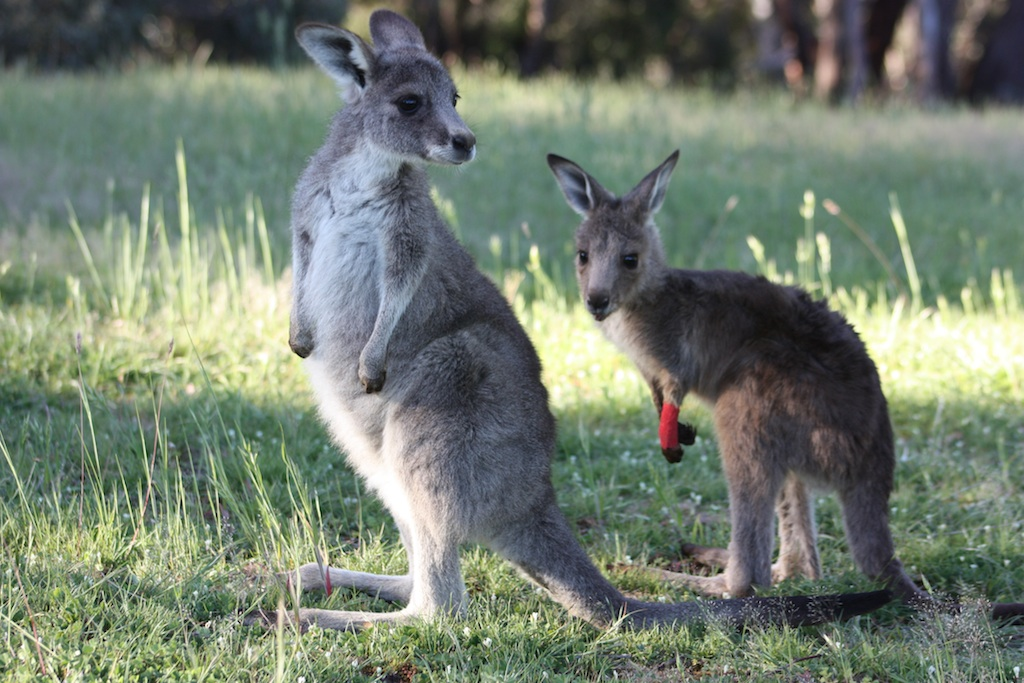Across Australia, dingoes are slowly being recognised for what they are: Australia's local apex predator with deep cultural significance and an important ecological role. Yet in many jurisdictions they continue to be subjected to widespread lethal control through baiting, trapping and shooting, due to policies that still classify them as pests or biosecurity threats. In 2023, Victoria ended...
Humane Society International (HSI) Australia and Australian Marine Conservation Society (AMCS) call on the NSW Government to announce an urgent retirement plan for the shark nets, after they confirmed all 51 wildlife death traps would be returning to Newcastle, Sydney and Wollongong beaches on the 1st September. The decision is bitterly disappointing for conservationists who hoped the Minns Government would stop pretending the nets make a difference to public safety and take a different approach guided by science.
SMART drumlines, drone surveillance and listening stations have been in place at NSW beaches for several years and are now at every beach with shark nets. The shark nets are redundant. Last summer, the shark nets did not catch a single target shark between Palm Beach to Cronulla, just a mounting toll of entangled and drowned protected and unintended species.
Indeed, by trapping wildlife right off metropolitan beaches, the shark nets could even be attracting sharks closer inshore. It makes no sense to continue with 100-year old technology for which there is no scientific support.
If the Government is insisting on rolling out the destructive nets this year, they must also roll out an education campaign to explain to the public that this will be the last shark netting season and that the removal of nets does not compromise beach safety. To be sincere about minimising the cost to wildlife, they must also commit to removing the nets the minute any endangered animals are harmed.
In 2021, all eight NSW local councils with shark nets officially voiced their opposition to shark nets through council motions and submissions to the NSW Department of Primary Industries. Shadow environment minister Kellie Sloane is giving the Government support for a different approach to reduce reliance on nets. She told the ABC that “The government has a role to play in helping the community become more involved in this process though education and awareness, as well as localised trials of different mitigation approaches”.
HSI Australia and AMCS ask the Government to use the support from local councils and the shadow environment minister to lead the public on this issue and set up a clear retirement plan for this destructive and outdated technology.
Lawrence Chlebeck, Marine Biologist and Campaigner at HSI Australia, said: “The government needs to dispel the myth that shark nets make swimmers safe. The shark nets are about as useful for public safety as the volleyball nets on the sand at Bondi.
“Unlike shark nets at Harbour beaches which do form an enclosure, the shark nets at ocean beaches are tiny in comparison to the size of the beach. At only 100m in length at 6m high, sharks easily swim around, over and under the nets.
“Year after year 90% of the animals caught in the nets are non-target species. In the last decade we’ve seen 3433 non-target animals killed in the nets. How can we continue to justify a program so reckless with our precious marine life for a false sense of security? It’s long past time for the nets to be retired. ”
Dr Leonardo Guida, shark scientist at AMCS, said: “Nobody is to blame for a shark bite, but it is the responsibility of our elected NSW leaders to have evidence-based and effective means of safety in place – shark nets fail this test. Having a shark net in the water is like having a single strip of mesh no wider than your finger on a fly screen door and hoping to keep the flies out. NSW Government has and uses modern-day solutions that improve safety for humans and wildlife alike, the nets are utterly redundant.”
Over the last decade, NSW shark nets have captured 3,433 unintended non-target animals. Many of these animals are threatened or protected species. Since 2013 we have seen the death of the following protected marine life due to NSW shark nets:
- 59 Critically endangered grey nurse sharks
- 105 marine turtles
- 54 dolphins
NSW’s Shark Meshing Program sees nets installed on beaches from Newcastle to Wollongong, every September until April. Every beach where a net is installed already has alternative, shark safety measures in place such as SMART drumlines, alert systems and drone surveillance. This technology has been in use on our beaches for several years.
Modern, non-lethal mitigation measures such as drone surveillance, alert systems, personal shark deterrents, and Shark Smart behaviour are much more effective at keeping people safe without the cost to wildlife.
Shark incidents are rare, and nets don’t stop them from happening. Thirty-six incidents have happened at netted beaches in NSW3. It is the rapid medical attention provided by life savers and first responders who stop such incidents from being more serious, not the nets.
Defenders of the nets like to say there has only been one fatality at a netted beach. To use this as a justification for nets is unscientific. There has also not been a fatality at hundreds of NSW beaches that have never had nets.
ENDS
Lawrence Chlebeck is available to speak to media, and can be available for in-person interviews on the Northern Beaches, Sydney. For interview requests or media enquiries, please contact Lawrence on 0481 774 581 or lchlebeck@hsi.org.au.
Dr Leonardo Guida is available to speak to media and is available for in-person. For interview requests or media enquiries, please contact Leonardo on 0400 896 567 or leoguida@amcs.org.au.
Images and video of marine life found entangled in NSW shark nets are available for download here.
Humane Society International (HSI) is the world’s largest animal protection organisation and HSI Australia established our office in 1994. We work to create a humane and sustainable world for animals advocating across wildlife conservation and animal welfare policy areas.
The Australian Marine Conservation Society is Australia’s peak ocean conservation organisation, working on the big issues that put our ocean wildlife and habitats at risk. Since 1965, we have protected critical ocean ecosystems around the nation, including Ningaloo and the Great Barrier Reef. We are the voice for Australia’s oceans.
References
- Shark Meshing (Bather Protection) Program 2022-23 Annual Performance Report – New South Wales Department of Primary Industries
2. McPhee, D. 2012. Likely effectiveness of netting or other capture programs as a shark hazard mitigation strategy in Western Australia
3. https://www.sharksmart.nsw.gov.au/shark-nets


